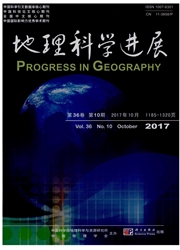

 中文摘要:
中文摘要:
In view of the significant demands and development trends of urbanization during the 12 th Five-Year Plan period, "smart city" has attracted wide attention as an advanced city development concept in China. Under the circumstance of rapid urbanization, traffic congestion and accessibility defi ciency become major challenges to many Chinese cities, as transportation and travel are closely related to the effi ciency of a city’s operation and the quality of people’s life. As essential part of smart city planning and management, smart travel offers an effective behavior planning countermeasure to reduce the amount of urban traffi c and optimize the space-time distribution of travels and provides an effective technology to enrich the theories and methodologies of urban and transportation planning. Orienting at the practical demand of citizens and focusing on their travel behavior, this paper carries out a discussion on the smart travel framework based on space-time behavior study and analyzes smart travel planning and its policy route from multiple perspectives, including a prediction on travel demand, transportation planning, public policy-making, and urban planning. What’s more, the paper suggests travel services for citizens based on space-time behavior analysis, such as providing personalized information, smart decision-making support, and individual behavior planning.
 英文摘要:
英文摘要:
In view of the significant demands and development trends of urbanization during the 12 th Five-Year Plan period, "smart city" has attracted wide attention as an advanced city development concept in China. Under the circumstance of rapid urbanization, traffic congestion and accessibility defi ciency become major challenges to many Chinese cities, as transportation and travel are closely related to the effi ciency of a city’s operation and the quality of people’s life. As essential part of smart city planning and management, smart travel offers an effective behavior planning countermeasure to reduce the amount of urban traffi c and optimize the space-time distribution of travels and provides an effective technology to enrich the theories and methodologies of urban and transportation planning. Orienting at the practical demand of citizens and focusing on their travel behavior, this paper carries out a discussion on the smart travel framework based on space-time behavior study and analyzes smart travel planning and its policy route from multiple perspectives, including a prediction on travel demand, transportation planning, public policy-making, and urban planning. What’s more, the paper suggests travel services for citizens based on space-time behavior analysis, such as providing personalized information, smart decision-making support, and individual behavior planning.
 同期刊论文项目
同期刊论文项目
 同项目期刊论文
同项目期刊论文
 Beyond Space (As We Knew It): Toward Temporally Integrated Geographies of Segregation, Health, and A
Beyond Space (As We Knew It): Toward Temporally Integrated Geographies of Segregation, Health, and A The shoemaker’s son always goes barefoot: Implementations of GPS and other tracking technologies for
The shoemaker’s son always goes barefoot: Implementations of GPS and other tracking technologies for 期刊信息
期刊信息
